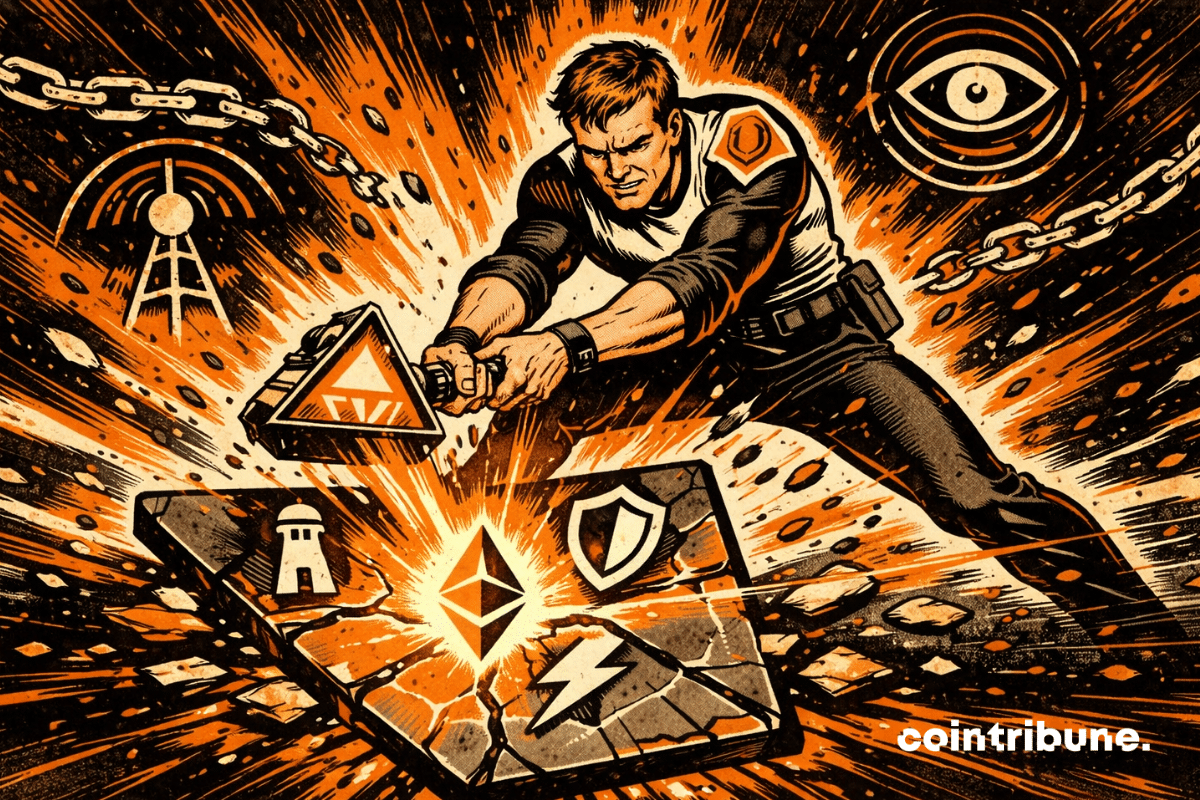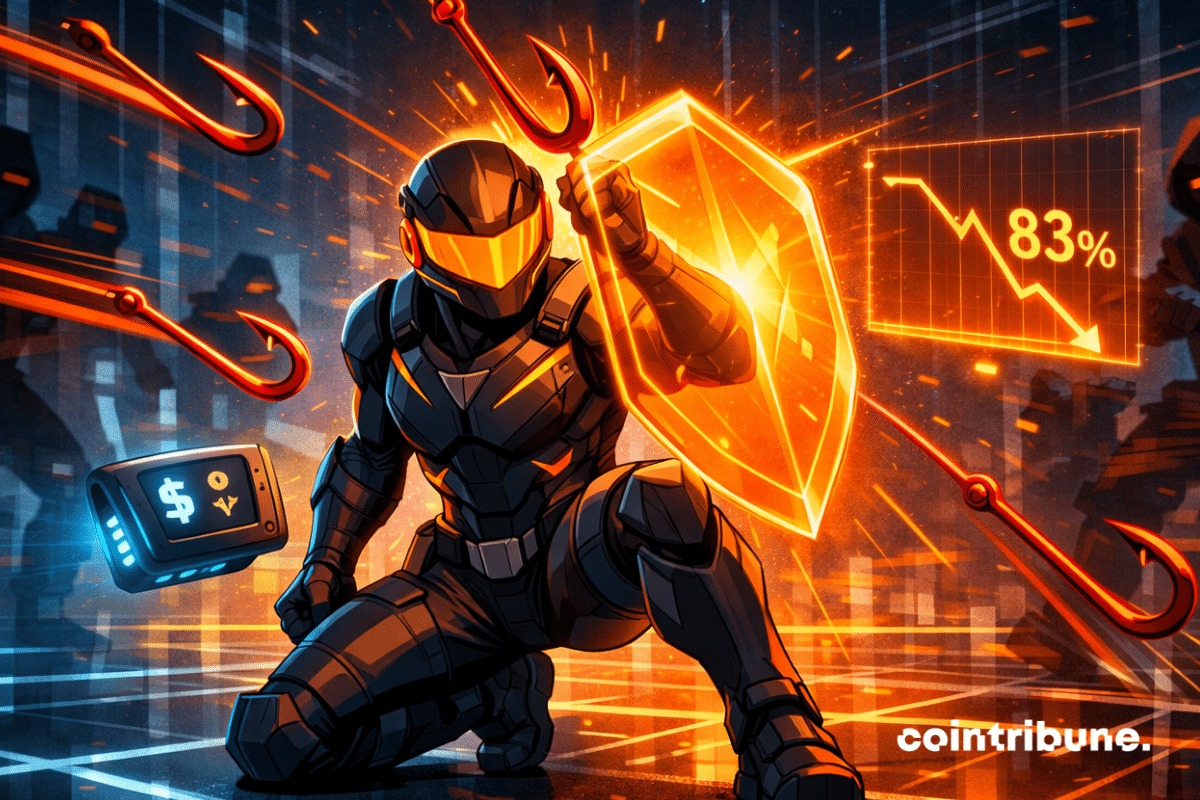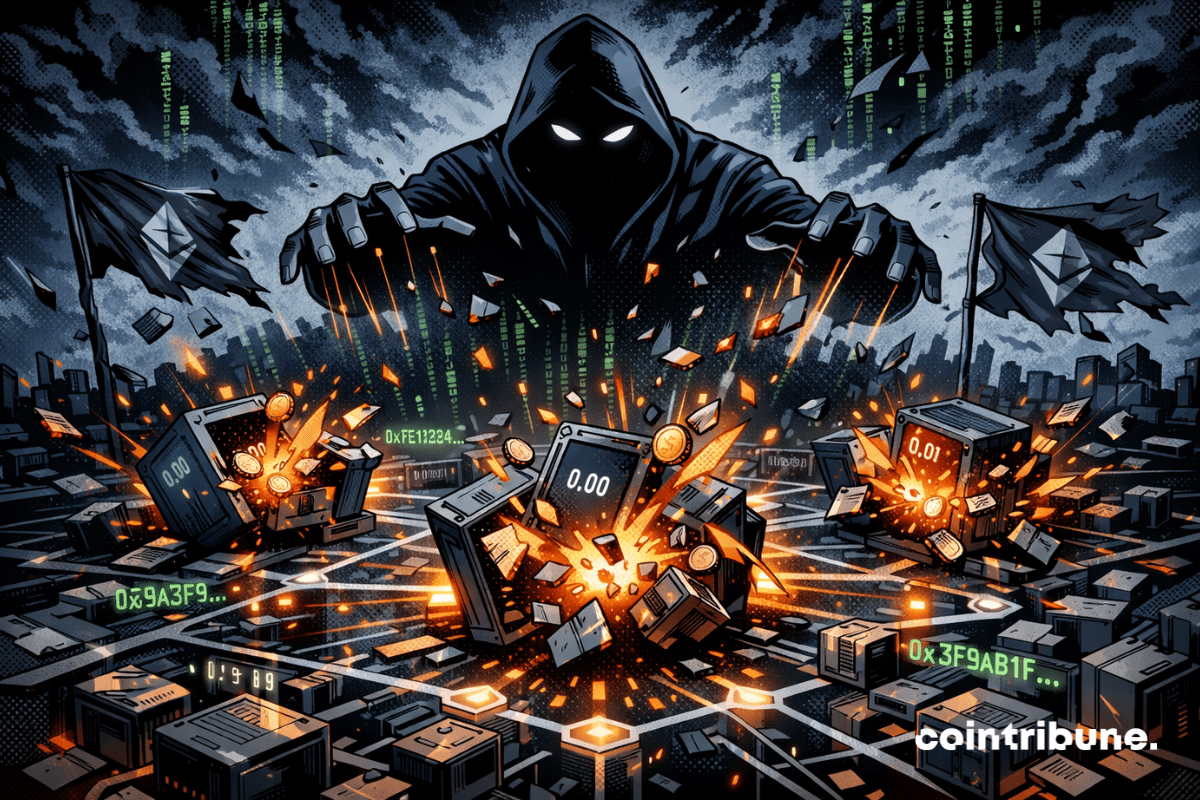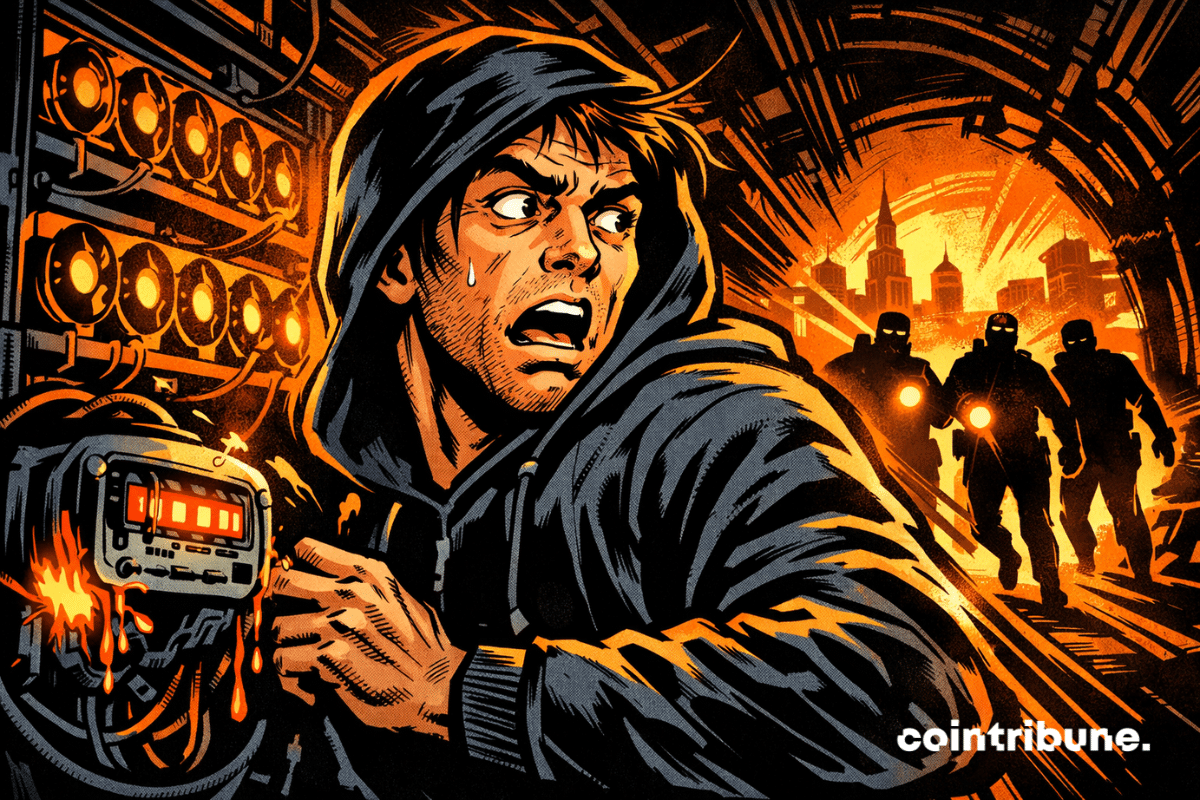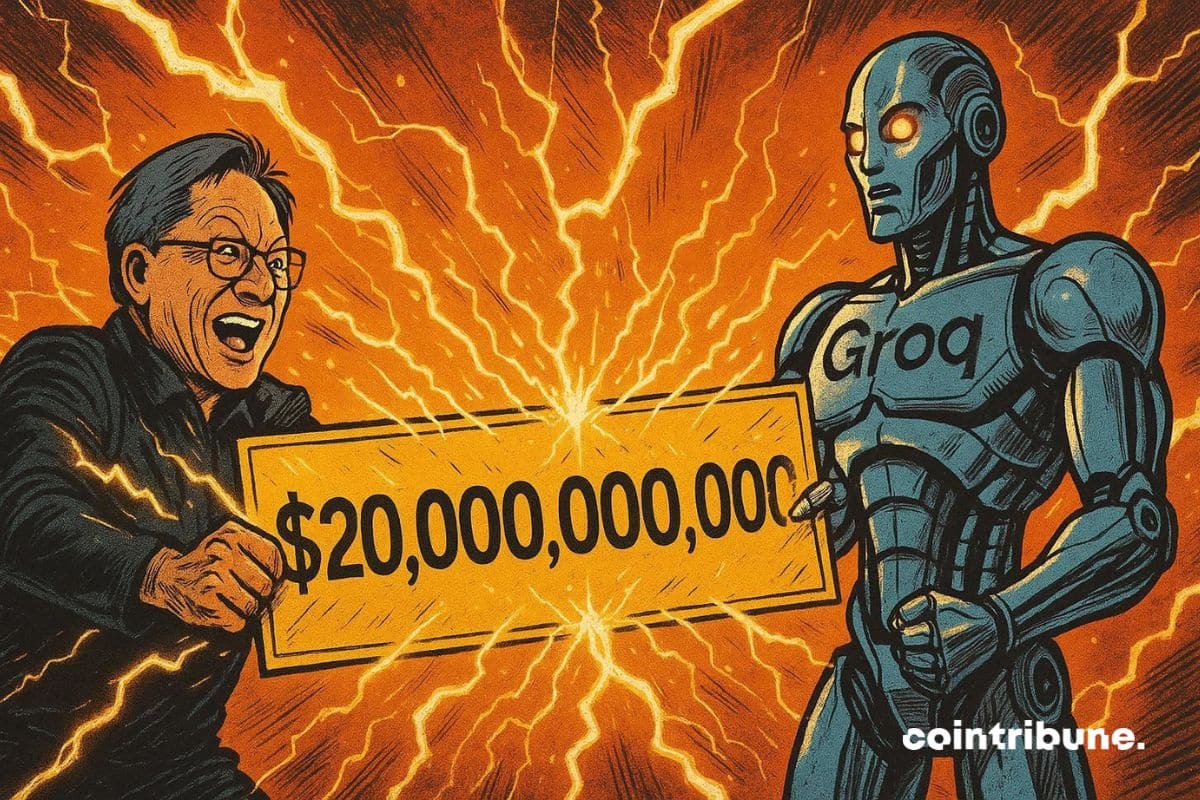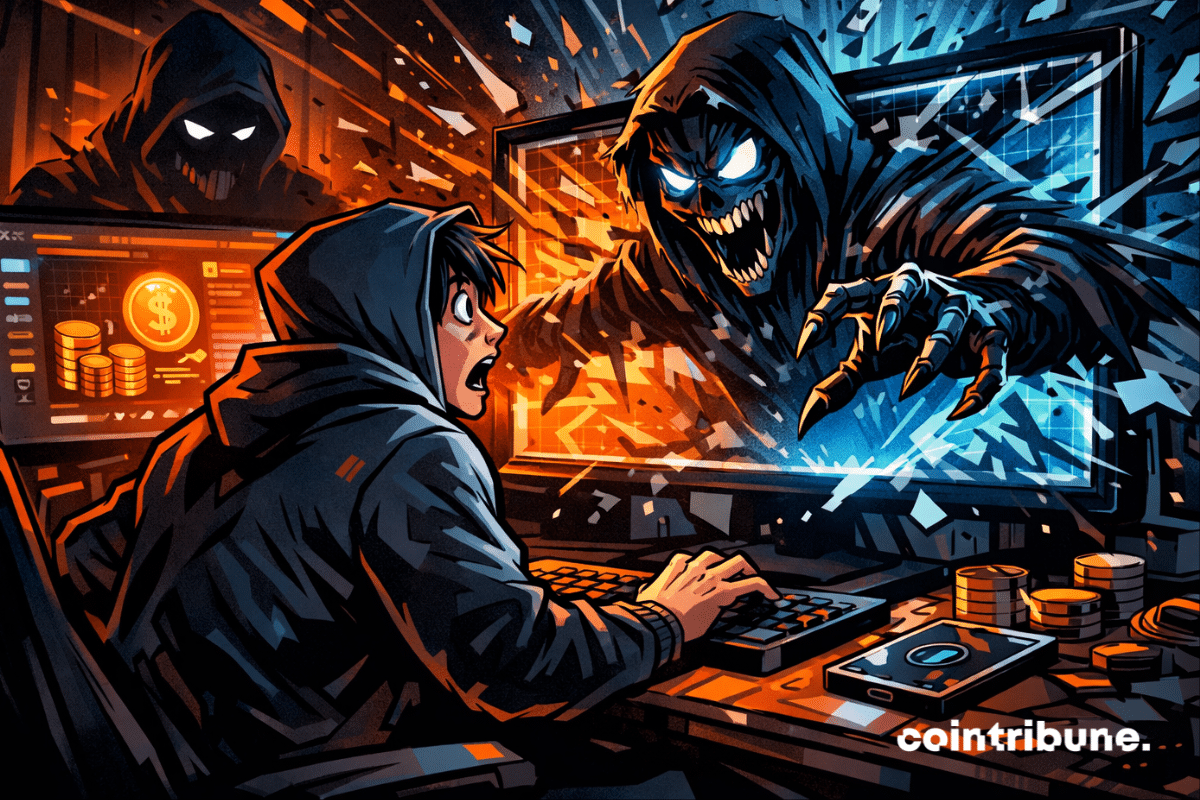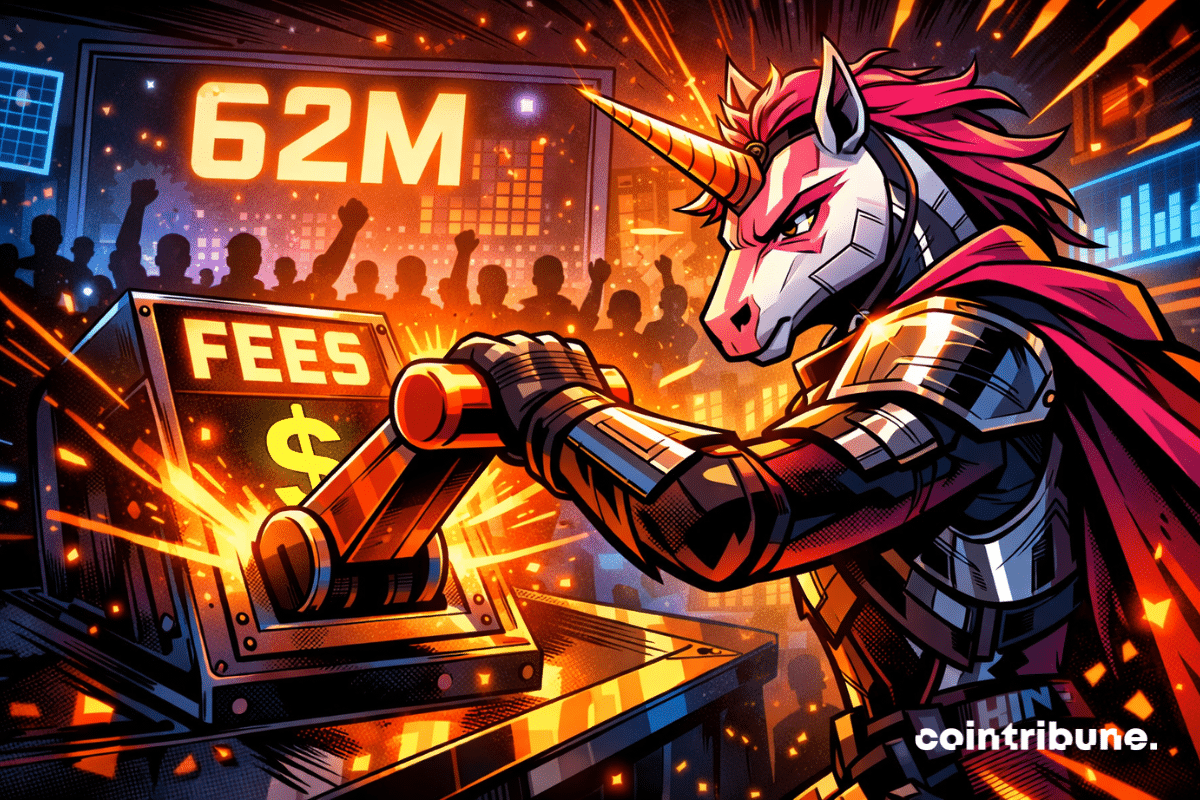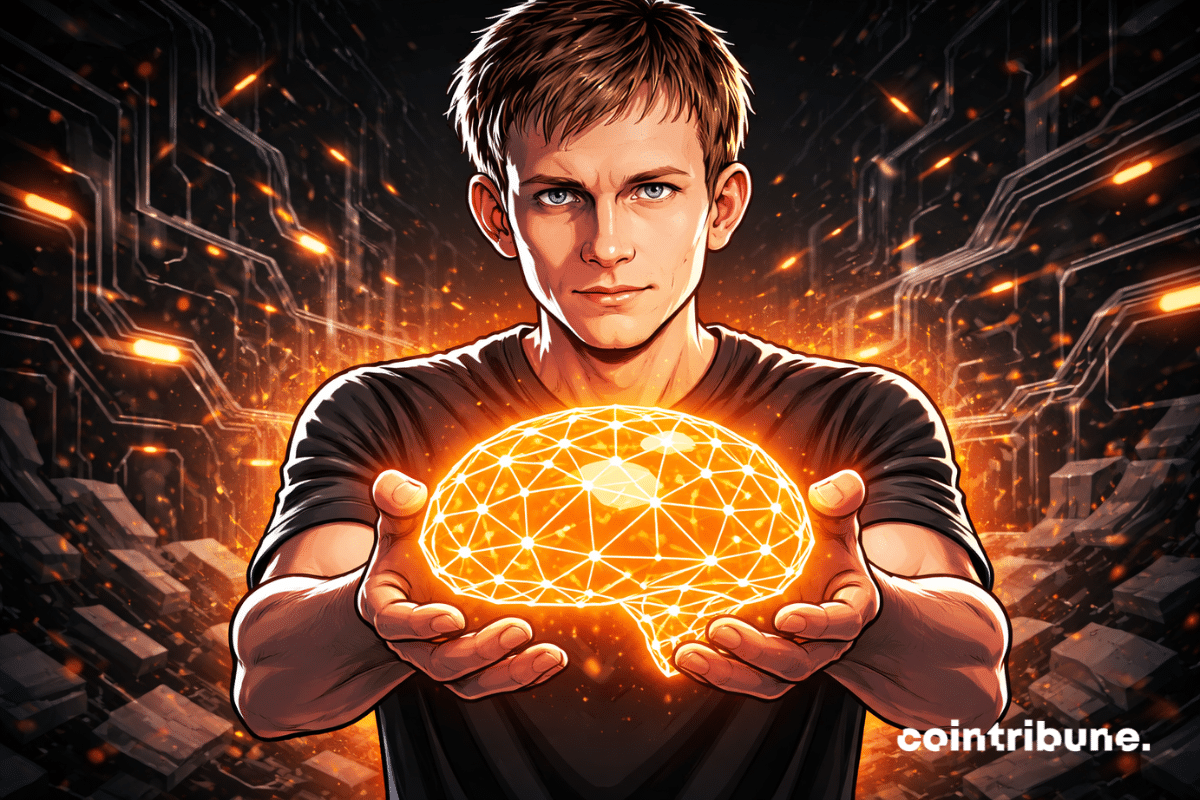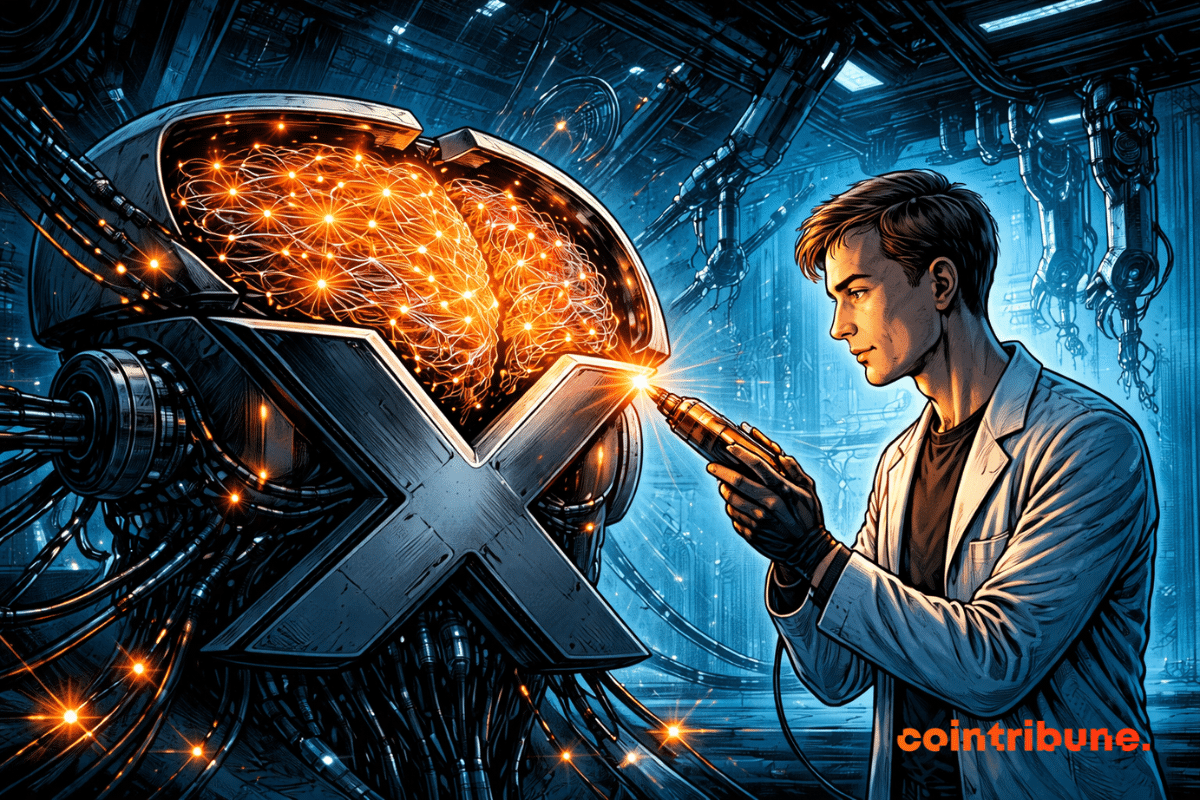Buterin claims that Ethereum has broken the blockchain trilemma. Discover why this change disrupts the future of crypto assets.
Tech News
The Fusaka update propels Ethereum. Its number of holders explodes, analysts raise alarms. All details in this article.
Ethereum is about to enter a new era. In a message published on X, Vitalik Buterin announces a major technical upheaval: zk-EVMs could become, by 2027, the main block validation mechanism. A profound transformation of the protocol, which would mark one of the most ambitious turning points since the creation of the network. Performance, decentralization, scalability... Buterin claims the trilemma is "solved" in practice. One challenge remains: ensuring security.
Crypto phishing losses dropped 83% in 2025, with fewer victims and smaller attacks, yet new wallet scams and evolving threats continue to challenge users.
In crypto, good resolutions never last: barely January has started, wallets are already siphoned, insiders suspected, and MetaMask emails clicking where it hurts...
A simple technical incident was enough to paralyze a large part of the crypto ecosystem. In November 2025, an outage at Cloudflare took offline Coinbase, BitMEX, Blockchain.com, Ledger, and many others. Within hours, the promise of Web3 resilience clashed with a brutal reality. Behind the smart contracts, the infrastructure remains vulnerable. Dependent on centralized Web2 services, many so-called decentralized projects expose a critical flaw. Vitalik Buterin sees this as a warning sign and a call to action.
Trust Wallet suspends its Chrome extension after a $7 million hack. Why is this crucial update postponed? What are the risks for users? Analysis of vulnerabilities, impacts, and urgent measures to protect your crypto assets in 2026.
Russia is moving to impose tougher penalties on illegal cryptocurrency mining after officials reported low compliance with new registration rules. A draft bill from the Justice Ministry proposes fines, forced labor, and prison terms for miners operating outside the law. Officials say the measures are intended to bring a rapidly expanding sector under state oversight and into the tax system.
The Decentralized Physical Infrastructure Networks (DePIN) sector is experiencing spectacular growth. According to CoinGecko, the total DePIN market capitalization now reaches $19.2 billion as of September 2025, up from just $5.2 billion a year earlier. The World Economic Forum projects this market could reach $3.5 trillion by 2028.
Miami, Florida, USA — As blockchain payments gain enterprise adoption, privacy has become a critical requirement rather than a feature. Addressing this shift, Fhenix introduced Privacy Stages — a new framework for assessing onchain privacy — and demonstrated its capabilities through Fhenix402, a private implementation of Base’s x402 payments that makes transaction amounts fully confidential while remaining fast and intuitive.
Ethereum is taking a strategic turn in 2026, with two major updates planned within a few months: Glamsterdam in the first half, followed by Hegota at the end of the year. Long criticized for the slowness of its development, the blockchain is now opting for a faster schedule, aligned with the growing demands of its ecosystem. This acceleration marks a turning point in the protocol's governance and opens a new technical phase for Ethereum, as the sector enters an era of consolidation.
Aave founder Stani Kulechov is facing growing criticism after purchasing a large amount of AAVE tokens ahead of a key governance vote, a move some community members say threatens fair decision-making within the DAO. The controversy has intensified concerns about the concentration of voting power and whether governance outcomes still reflect broad community interests rather than the influence of large holders.
When two former crypto rivals kiss on an ADA–SOL bridge, it smells like strategy… or a plot to dethrone Ethereum quietly, under Bitcoin's watchful eyes.
Nvidia has just signed a $20 billion check to acquire Groq's assets, an AI gem with chips 10 times faster. This historic acquisition will reshape the semiconductor market and impact even cryptocurrencies. Analysis of a masterstroke that could change everything, from data centers to investor portfolios.
Polymarket has just confirmed that a security flaw affected certain user accounts. It indicates that a vulnerability related to a third-party authentication provider allowed unauthorized access and resulted in losses for several victims. The platform states it has fixed the problem and indicates there is no longer any persistent risk.
Stealka malware targets browsers and crypto wallets, stealing data while disguised as game hacks and mods.
Uniswap burns 100 million UNI, activates its fees and makes the DAO swear allegiance. Crypto enters adulthood... or a Wyoming courtroom?
Cryptocurrency mining in Russia is helping support the ruble, with officials noting its growing role in the economy and financial flows.
Charles Hoskinson, founder of Cardano, sounds the alarm on rushing into post-quantum cryptography adoption. According to him, blockchains will have to accept major compromises to defend against future quantum computers. But when will this threat really become critical?
Adam Back has pushed back against growing concerns over quantum computing, arguing that while Bitcoin should prepare for the future, the technology is still far from posing a real threat.
When Grayscale tells us everything is fine for bitcoin, Naoris draws its anti-quantum shield. What if the enemy is not who we think it is?
Japan is planning a massive AI-focused data center in Nanto with 3.1 gigawatts of power, aiming to position itself as a competitive global hub for artificial intelligence and cloud computing.
Reports of a renewed crackdown on Bitcoin mining in China’s Xinjiang region triggered concern across crypto markets this week. Early claims warned of severe hashrate losses and widespread shutdowns. Mining data reviewed after the initial reaction suggests, however, that the impact was brief and far smaller than first reported.
Crypto 2025: invisible hackers, billions lost, a rogue state involved... What if your wallet was the next silent victim?
Six years after launching its own private blockchain, JPMorgan Chase is radically changing strategy. The bank has just transferred its digital deposit token, the JPM Coin, to Base, Coinbase's public network. A major turning point for an institution that until now had exclusively relied on its closed ecosystem Kinexys.
Ethereum’s long-term strength may depend on more than scaling and security. According to co-founder Vitalik Buterin, true trust in the network also requires a broader understanding of how it works. He argues that simplifying Ethereum’s protocol is essential. Without it, users must rely on a small group of experts rather than verify the system themselves.
Bitcoin’s Lightning Network has reached a new capacity record as major exchanges add more funds and developers roll out new tools. At the same time, an upgrade to Taproot Assets is pushing Bitcoin closer to supporting multiple asset types on its base ecosystem.
Following the resounding success of its 2025 edition, WAIB Summit Monaco proudly announces its return on June 9–10, 2026, at the prestigious One Monte-Carlo, located in the heart of Monaco’s iconic Casino Square.
Solana has resisted one of the most intense DDoS attacks ever recorded on a public blockchain, peaking at 6 terabits per second. The network remained stable, with no interruptions or notable degradation. This inadvertent test, occurring amid recurring technical tensions in the ecosystem, marks a turning point. Long criticized for its instabilities, Solana today shows robustness that could change its position in the hierarchy of decentralized infrastructures.
Algorithms decide what we see, but according to which rules? Vitalik Buterin, co-founder of Ethereum, directly challenges Elon Musk and denounces the opacity of X (ex-Twitter). In a context of mistrust towards centralized platforms, he proposes a radical alternative: auditing X’s algorithm thanks to blockchain and ZK-proofs. A strong stance that revives the debate on the governance of social networks in the Web3 era.
